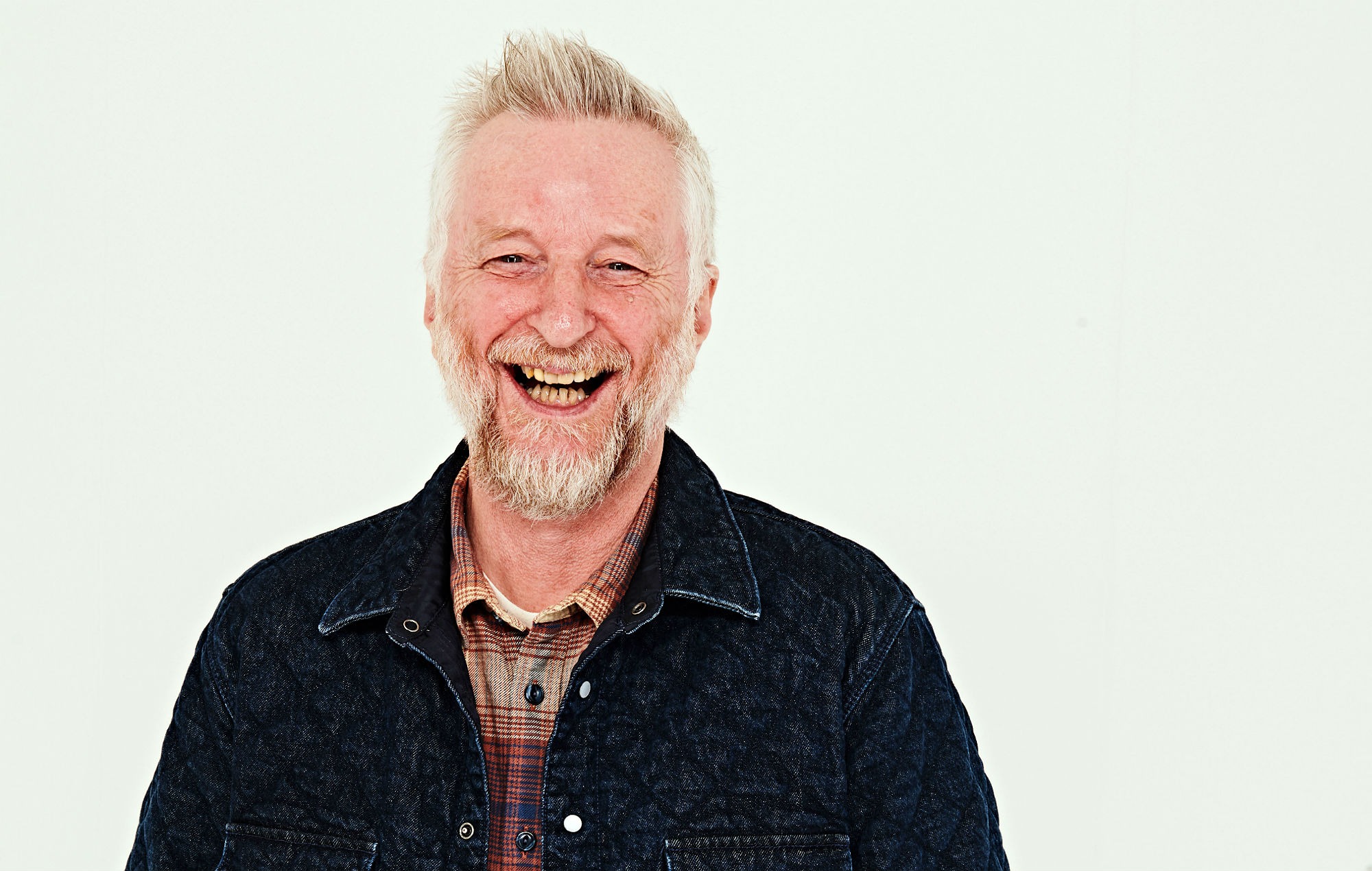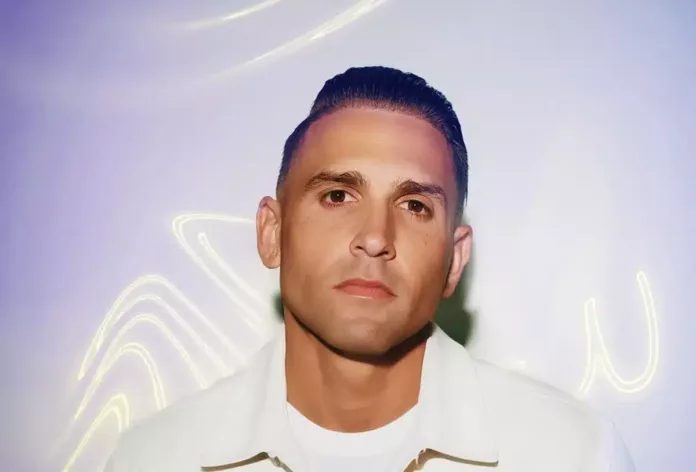
Billy Bragg on Glastonbury and activism: “The idea of the younger generation not being political has gone in the dumpster”
“What I really love to do at Glasto is walk around with a great big bag of doughnuts, looking at weird stuff that I’ve never seen before,” Billy Bragg tells NME about what he’s missing the most about Worthy Farm, and his plans to fill that Glastonbury-shaped hole in his life this weekend. “Maybe I’ll sit around the campfire, and play some loud dance music from the living room with the windows closed so I can get that damp ‘doof doof doof’ sound in the distance.”
As LeftField stage where music and politics combine for punters to “recharge their activism”, Bragg has become part of the fabric of the festival – like the mud, the drop-toilets, Michael Eavis’ infectious grin and those blissful sunrises at the Stone Circle. While having to ‘Glasto At Home’ like the rest of us, Bragg isn’t resting on his laurels. As well as recording a cover of Taylor Swift in tribute to this year’s headliner for NME, Bragg also took the time to talk to us about alternative ways to stay engaged, the current political climate, new music, and his favourite Glastonbury eateries.
Hello Billy. You must be feeling quite inspired at the moment, what with the way the world is falling apart and all?
Billy: “Yes, with the world falling apart some things stay in place. There’s always something to write about, but particularly at the moment. Whether it’s the pandemic and the implications of that, the ramifications of the killing of George Floyd, you know. I came into politics through Rock Against Racism, and I’ve seen things I never thought I’d see – in terms of the way that the younger generation has reacted. The idea of them not being political has gone in the dumpster.”
Does it feel like real and positive change is possible at the moment?
“Yeah, because I think people are taking it into their own hands. The toppling of the Colston statue in Bristol was remarkable in the sense that police stood there and didn’t do anything about it. I saw a senior officer from Bristol say that you have to understand the context of these things. Jeez, I’ve never heard the police say that before. Even the police recognise that something has changed.”

Do you feel that’s more widespread than before?
“There’s been a change in perception, and that can be transferred to the way that people react. When we were doing Rock Against Racism, we were campaigning against The National Front. You know, ‘Look at those bad people over there, let’s campaign against them’. The implications now are that racism is not necessarily just about bad people, but the structure of society. The way that the white majority see the world is part of the problem. White privilege becoming visible will hopefully lead to some greater understanding.”
Naturally Glastonbury and activism go hand in hand. What do you think the dialogue would have been about this year?
“Well we have recorded two panels to talk about what’s going on. One of Left Field’s panel curators John Harris from The Guardian has put together one concerning activism during the pandemic and how communities organise themselves to ensure that people are fed and looked after, and Rosie Rogers from Greenpeace has done one about where we go from here. We recorded them last week so they’re pretty up to date about what’s been happening.”
Anything else in particular about Glastonbury that you’re really missing?
“Near our stage last year was a place called Crumble Shack, which only served different types of crumble dessert. I just lived on that all weekend. You can see it from the stage so I just kept giving them a shout-out and they kept giving me free crumble. It was heaven for me. I must have put on three or four pounds last year.”
Any other underrated Glasto spots that you’d like to give a shout out to?
“Another one of my favourite places is Rosie’s Tea Room. I’m shit in the morning without a cup of coffee, but theirs is great. I remember going there the morning of the Brexit result in 2016 and there were two young blokes there going, ‘What you gonna do about it mate?’ It was before my coffee and I was like, ‘What am I gonna do? What are you gonna do? I’ve been to Europe, I’ve had the benefit of EU memberships, your generation are the ones who are fucked – what are you gonna do?’ That’s why I’m really encouraged to so many of them out there on the streets recently.”
That Brexit morning at Glastonbury was a very dark one.
“I remember coming out of our dorm at Glastonbury and hearing on the radio that Brexit happened and that David Cameron was stepping down. Singer-songwriter Will Varley was sat there with his head in his hands and said, ‘I’ve got about five or six songs that mention David Cameron – what am I going to do?’ I said, ‘Don’t worry mate – Boris Johnson is the same amount of syllables – just put him in and you’ll be fine’.”
Are you looking forward to another three years of Boris Johnson being in charge
“Not really. I’m hoping that we might be able to do something about him before then. I think Brexit could still blow up in their face. Brexit forces them to choose between what the Conservatives laughingly thought were the two pillars of their ideology; free trade or sovereignty? You can’t have both. I’ve seen nothing in Boris Johnson’s handling of the COVID crisis to suggest that Brexit will be anything other than a slow-motion car crash. But, at least we’ve got Taylor Swift on our side now – which we didn’t have before!”

You’ve described Taylor Swift as a ‘kindred spirit’?
“I didn’t quite take on board that I’d be presenting with Taylor Swift at the NME Awards, I don’t know why. I felt before I met her that she was trying to use her platform in a more constructive way. You could tell from the types of song she was writing. Since she started Tweeting about Black Lives Matter, it’s very clear where she stands. At the awards she said to me, ‘I really respect what you do’, but I said, ‘I’m Billy Bragg and I’m supposed to, it’s when you and someone of your stature does it that it has the possibility to make a real difference – so more power to you’.”
Would you have been angling to join her on stage at Glastonbury this weekend?
“No, I don’t think I’d have fitted in with her act! But I’d have loved to have invited her down to the Left Field. We’ve got a nice area to hang out backstage, hot showers and free cups of tea. If that isn’t socialism then I don’t know what is. She’d fit right in. Maybe another time.”
How do you feel about not being able to play live for a while?
“I think the number of people doing online gigs is interesting. I wonder if there will still be a space for that when all of this is over, and whether people will be willing to pay for and participate in. When I see the way people are doing these things, it reminds me of the original spirit of Glastonbury festival because it’s all pretty ad-hoc. Glasto was just people doing something to see how it would feel. You know, come down, get some free milk, park anywhere, relax, see what happens.”
But nothing can replace that real Glastonbury feeling?
“No. There’s an emotional solidarity in being in a crowd and all singing the same song together. You come away feeling like you’ve been lifted up. That’s why people sing in church, that’s why people sing at football matches – because you’re sharing an emotion. Music doesn’t have agency to change the world but it can change how you feel. It’s about empathy. We can’t just dismiss it as entertainment. When we come out the other side of this, I think we’ll appreciate these things a lot more.”
‘The Best of Billy Bragg at the BBC’ is out now.



